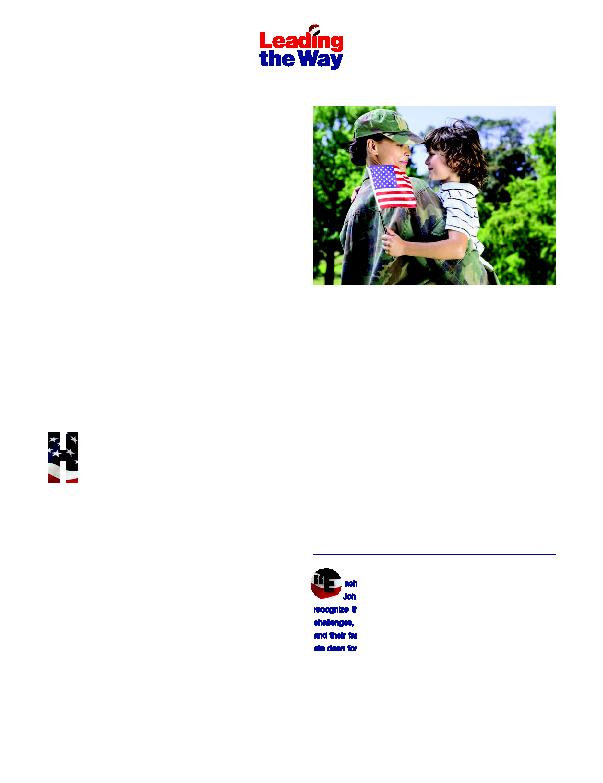
There are currently 443,200 veterans in New Jersey, of
veterans, notes Ronald J. Steptoe, CMR, chair and CEO of
the Steptoe Group and adjunct instructor, Department of
Family Medicine and Community Health. With the impact
of each veteran's service estimated to affect at least two
family members, approximately 1.33 million New Jersey
residents have been impacted by war and/or military ser-
vice, says Steptoe, a West Point graduate who served as an
officer in the U.S. Army and is currently a member of the
board of directors of USA Cares, a veterans' service orga-
nization.
service, veterans have two to three times more chronic
health conditions than nonveterans, he adds.
services for those with military service are just a
U.S. Department of Veterans Affairs (VA) issue may
be surprised to learn that the majority of veterans
fact, only approximately 26 percent of all veterans are reg-
istered with the VA, and even among those who are regis-
tered, the current backload of claims exceeds 900,000,
Steptoe notes.
ily involved in the school's Joining Forces initiative, knows
personally about the difficulties veterans can experience
when attempting to obtain VA benefits, as well as the issues
military personnel face when transitioning back to civilian
life.
enlisted during high school and began his service after grad-
uation, with a two-year tour stationed in the Republic of
Korea near the Demilitarized Zone. On November 11,
Iraq and a medic was lost, prompting Parks's deployment
there in 2006.
thing to me. It matters to me."
of those individuals are being seen in urgent care practices,
emergency rooms, and local physicians' practices. The
responsibility for their care, therefore, rests with all mem-
bers of the medical community, he says.
the initial training sessions at the medical school. "The
question is, do you know which ones they were? Probably
not."
challenges, and to know how to access care for these individuals
and their families," vows Carol A. Terregino, MD '86, senior associ-
ate dean for education, associate dean for admissions, and associ-
ate professor of medicine (facing page, center), with the codirector
Robert C. Like, MD, MS, professor of family medicine and community
health and director, Center for Healthy Families and Cultural Diver-
sity (facing page, left), and Kevin Ryan Parks, a fourth-year medical
student at Robert Wood Johnson Medical School, who served as a
medic in the U.S. Army for four years.
O
E
M
R
S
O